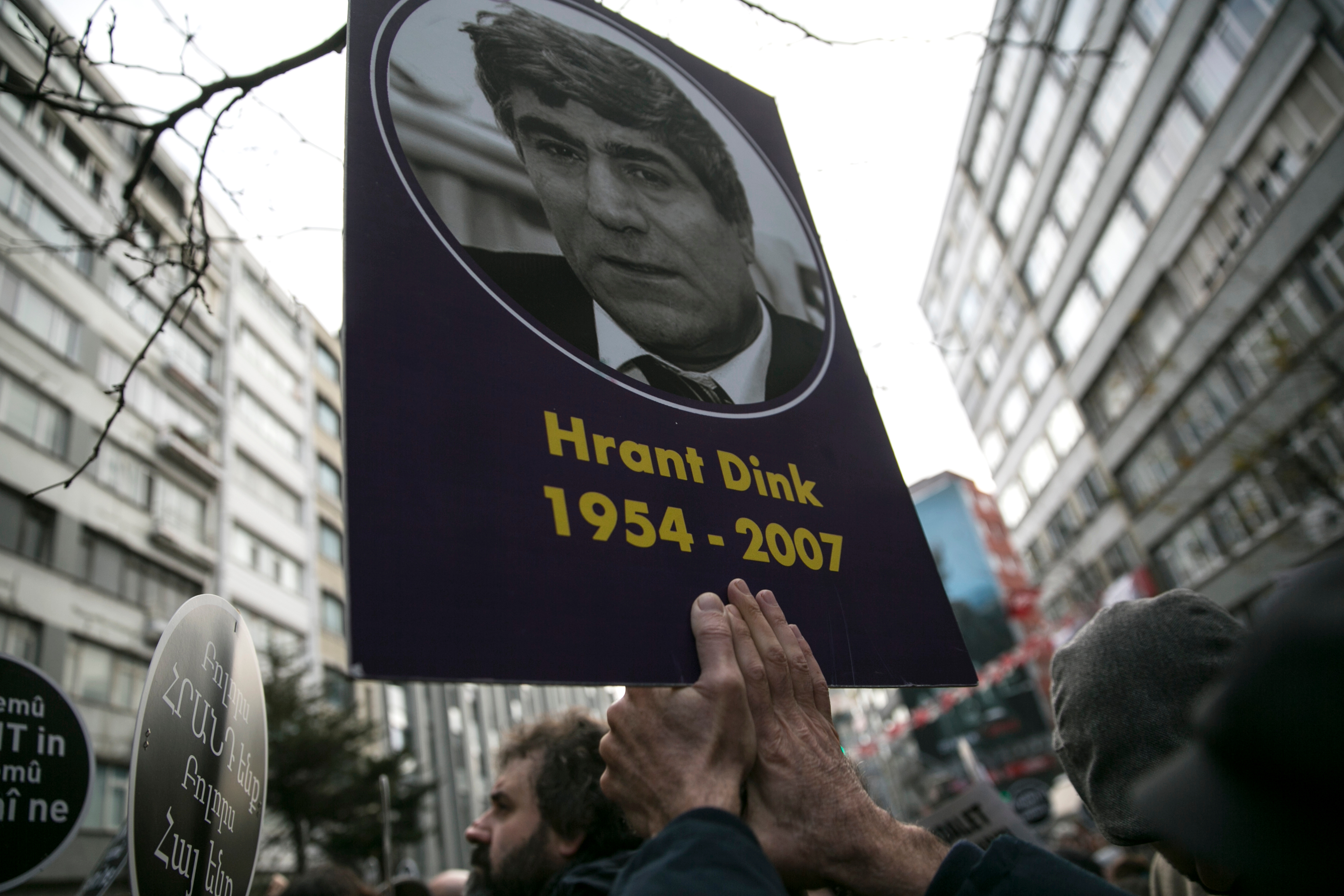On the 17th anniversary of the murder of Turkish-Armenian journalist Hrant Dink, the International Press Institute (IPI), the global network of editors, journalists, and media executives for press freedom, condemns the continued impunity in the case and calls on the Turkish authorities to deliver justice.
On January 19, 2007, Dink was shot in broad daylight outside the Istanbul office of Agos, the bilingual newspaper he founded. The murder of Dink sparked outrage both domestically and internationally.
Achieving justice for Dink has been impeded by inadequate investigations that have not identified all those involved in the killing, including the masterminds. The shooter, Ogün Samast, and others who were initially identified as being involved in the planning of the shooting were sentenced to prison in separate trials in previous years. However, it is widely believed that Turkish authorities have yet to shed light on the full circumstances of Dink’s killing and the involvement of other actors.
Emre Kızılkaya, chair of IPI’s Turkey National Committee and vice chair of IPI’s Executive Board said: “We have been waiting for justice for Hrant Dink for 17 years. The European Court of Human Rights (ECtHR) emphasizes the obligation of states to “actively” protect journalists. Sadly, Article 10 of the court’s “key theme” on this issue is full of examples from Turkey, Dink in particular.”
IPI Deputy Director Scott Griffen added:
“We once again call upon the Turkish authorities to deliver full justice for the heinous murder of Hrant Dink: this means identifying, prosecuting, and jailing all those responsible, including the ultimate masterminds. Impunity for the killing of journalists is a direct attack on press freedom and the public’s right to news and information.”
Dink was posthumously named an IPI World Press Freedom Hero in 2007.
Gunman released in November
Samast, an ultranationalist who was 17 when he pulled the trigger, was sentenced by a juvenile court to 22 years and 10 months in prison for premeditated murder and carrying an unlicensed gun. However, Turkish law meant that he would serve only 15 years of the sentence. His confinement was later extended by five years due to his involvement in a fight with prison guards.
On November 15, 2023, Samast was released on parole for “good behaviour”. Two days later, a new lawsuit was filed against Samast accusing him of “committing crime in the name of a terrorist organization”, namely, the network of Fethullah Gülen, which the Turkish authorities consider a terrorist organization under the acronym FETÖ. Shortly thereafter, the Istanbul 14th High Criminal Court merged Samast’s file with that of 11 public officials who are also accused of links to Gülen’s network in the context of Dink’s assassination. The next hearing is scheduled for March 6, 2024.
These developments were followed by a retrial of 15 other suspects, who are also public officials accused of links to Gülen. The defendants, some of whom have already served several years in prison, pleaded not guilty and demanded to be released. The Istanbul 14th High Criminal Court scheduled the next hearing for March 27, 2024.
Many observers in Turkey have criticized the recent focus on the Gülen network as the entity responsible. Lawyer Fethiye Çetin, speaking to journalist Cansu Çamlıbel, said, “It’s not possible to accept the argument that the Dink murder is solely a FETÖ operation. … If the murder was indeed a FETÖ plot and the Istanbul Police Department did not know about it, why didn’t the Istanbul Police Department do what it was supposed to and take measures against the threats [that Dink received before being assassinated]? … The warring factions within the state did not think that Hrant Dink was worth protecting, leading to this outcome. They now attempt to manipulate public perception by attributing the outcome solely to FETÖ because this is where the wind is blowing.”


